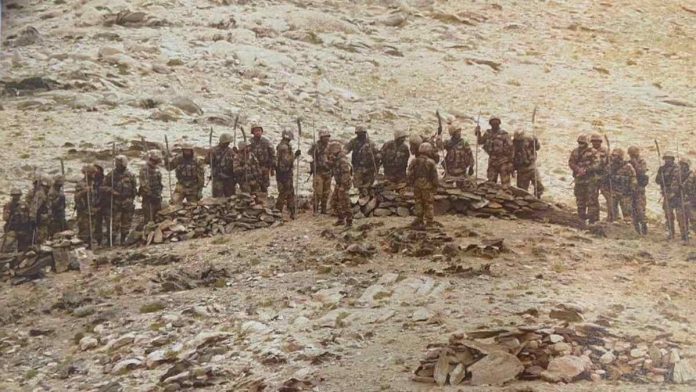New Delhi: India’s defence and security establishment is not impressed by China’s talk of “maintaining and enhancing peace in border areas”, as stated in the joint statement issued after Thursday’s meeting between External Affairs Minister S. Jaishankar and his Chinese counterpart Wang Yi.
China’s words, it believes, will have to turn into action on the ground for progress in resolving border tensions.
Defence and security sources said even though China talks about peace, a group of about 40 soldiers continues to stand opposite Indian forward positions in the Chushul sector carrying rifles and iron rods that appear to have machetes on their heads.
The Chinese have not made any attempt to escalate for the last two days but remain “dug in”, sources added.
India, sources said, has never ever been for any violent actions, and has always stressed on adhering to past agreements to maintain peace and tranquility on the ground.
Even though China talks about peace, the build-up by Chinese troops in the depth areas is constantly increasing, sources said.
Since tensions on the southern banks of Pangong Tso began at the end of August, China has brought in a large number of soldiers, tanks and armoured personnel vehicles into the area.
Sources estimate that over 100 tanks and armoured vehicles have been brought in. Inputs also suggest that the Chinese are laying optical fibre near the LAC, a move that indicates increased Chinese presence and the need for maintaining communication networks.
Talking about what will be an acceptable course of action from China, sources said India has always stressed on disengagement and then de-escalation.
“It is very important to disengage first and this has to be followed up with de-escalation. De-escalation means the men and equipment that have been moved forward will go back to the camps they were in before they moved out. Basically, this means status quo ante,” a senior officer in the defence establishment said.
Restoration of status quo ante — that is, border positions that existed in April, before Chinese incursions across the LAC — has been India’s constant demand to resolve tensions at the border.
Corps commanders to take forward diplomatic talks
India and China are currently engaged in brigade commander-level talks, which have been taking place regularly since clashes at Pangong Tso end-August, which have taken border tensions to a new high.
Sources said a fresh corps commander-level dialogue will be fixed soon to take forward the agreements reached between Jaishankar and Wang in Russia.
The Indian military is hoping that the Chinese start easing tensions by fulfilling the agreements reached between the two sides on disengagement in areas earlier agreed upon.
“The only place that China has fully agreed to (honour) earlier agreement to disengage was in the Galwan Valley. However, the Chinese disengagement here is likely more to do with the rise of water level in the Galwan river than a sincere attempt to ease tensions,” a source said.
China, the source added, is yet to fully pull back from the Gogra area and has refused to budge from Finger 4 on the northern banks of Pangong Tso.
“New sites of tensions have emerged. Amid all the talks, the Chinese tried to occupy Indian territory in the southern banks also. We are countering them,” the source said.
On 28 August, China’s People’s Liberation Army (PLA) had contacted Indian forces on 28 August through the local hotline at Chushul, and both sides talked about refraining from any escalatory action and to avoid night patrolling.
But later that night, the PLA moved in over 1,000 troops to capture Indian territory on the southern bank of Pangong Tso. Indian soldiers thwarted the move, outflanking the PLA and capturing heights up to India’s perception of the LAC.
Sources said the diplomatic conversation has given new room for talks at the military levels.
“The talks have happened earlier too. It was also decided that easing tensions was important but China did the opposite by being aggressive and even carried out an ambush that claimed the lives of 20 soldiers,” a source said, referring to the 15 June Galwan Valley clash. “However, a new opportunity is there for fresh talks and hopefully words will turn into action,” the source quoted above said.
































